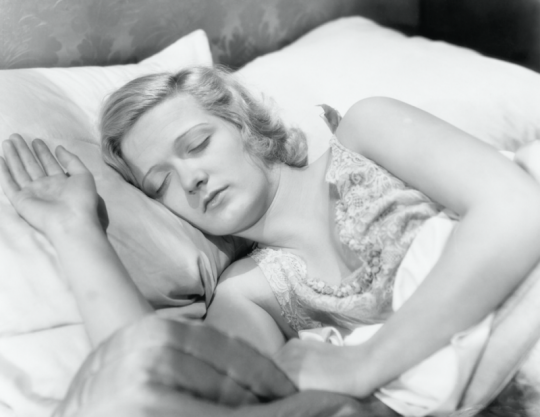Afternoon Siesta, Anyone? Experts Believe We Should Be Sleeping Twice a Day

Woke up tired again? Us too! But it turns out there could be a very good reason we always feel zonked, even after getting the golden eight hours. Experts believe that sleeping once a day at night isn’t actually beneficial. Instead, we should be hitting the hay twice a day.
Afternoon nap, anyone?
Experts claim that the idea of sleeping for a continuous eight hours is a recent invention, and, in fact, our body clocks are much better suited to two shorter bursts of sleep ever day.
In an article published in The Conversation, Melinda Jackson, a psychologist who specializes in sleep disorders at RMIT University, and Siobhan Banks, a sleep researcher at the University of South Australia, suggest that so-called segmented, or bimodal, sleeping was actually par for the course way back when.

“Anthropologists have found evidence that during preindustrial Europe, bimodal sleeping was considered the norm,” they explained before referring to a concept of first and second sleep often mentioned in old literature.
The researchers argue that in the olden days, people’s bedtimes weren’t determined by the time of day, but by what they had to do and when.
“Interestingly, the appearance of sleep maintenance insomnia in the literature in the late 19th century coincides with the period where accounts of split sleep start to disappear,” Jackson and Banks go on to explain. Maybe striving for eight hours explains why 25 percent of us suffer from some sort of sleep disorder.
This isn’t the first time a two-sleeps-a-day regime has been suggested as an alternative, potentially more beneficial sleeping pattern. In the early 1990s, psychiatrist Thomas Wehr conducted a monthlong experiment to test the theory.
A group of people were left in darkness for 14 hours each day, as opposed to the standard eight hours. By week four, a distinct, new two-phase sleep pattern had emerged. The participants would sleep for four hours, wake for one to three hours, and then fall into a second four-hour sleep. Wehr concluded that people were much better suited to a split sleep pattern.
Experts argue that the research suggests segmented sleeping suits our body clocks better. It could even make the three o’clock flop a thing of the past because “it provides two periods of increased activity, creativity, and alertness across the day, rather than having a long wake period where sleepiness builds up across the day and productivity wanes.”
So, the next time you want a little afternoon nap, go ahead and do it. Science said you should. Sadly, your boss may have other ideas.

